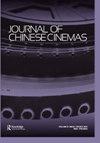Exchanging faces, matching voices: Dubbing foreign films in China
IF 0.4
3区 艺术学
0 FILM, RADIO, TELEVISION
引用次数: 1
Abstract
ABSTARCT This article is part of a larger project on dubbed foreign films, which were the Chinese people’s ‘window to the outside world’ during the Cold War era. Between 1949 and 1994, when Hollywood’s path to China was blocked by Cold War politics, the Chinese Communist Party dubbed and screened over one thousand films from the Soviet bloc, Western Europe, and beyond. In this article, I argue that despite the appearance of ventriloquism, dubbing is fundamentally analogous to Schleiermacherian literal translation in that dubbing requires bending domestic voices to match foreign lips and bodies. The Chinese dubbing practice, with its emphasis on synchrony or ‘matching voices’, produced voices within the Chinese soundscape that were uniquely ‘foreignized’ and ‘embodied’. The dubbing actors distinguished themselves from mainstream voices by focusing on the body instead of on articulated messages and emotions; their voices were rare instances of geno-voices amid the chorus of pheno-voices during the Maoist and post-Mao years. In the second part of the article, I examine ethical issues in the representation of the Other in the context of Chinese dubbed foreign films.换面孔,配声音:在中国为外国电影配音
ABSTARCT这篇文章是一个关于配音外国电影的更大项目的一部分,在冷战时期,配音外国电影是中国人的“对外窗口”。1949年至1994年间,当好莱坞进入中国的道路因冷战政治而受阻时,中国共产党为1000多部来自苏联、西欧和其他地区的电影配音并放映。在这篇文章中,我认为,尽管出现了腹语术,但配音从根本上类似于施莱尔马彻式的直译,因为配音需要弯曲国内声音以匹配外国嘴唇和身体。中国的配音实践强调同步或“匹配的声音”,在中国的声景中产生了独特的“异化”和“具体化”的声音。配音演员专注于身体,而不是表达信息和情感,从而区别于主流声音;在毛主义和后毛时代,他们的声音在天才的合唱中是罕见的热那亚声音。在文章的第二部分,我考察了在中国译制外国电影的背景下表现他者的伦理问题。
本文章由计算机程序翻译,如有差异,请以英文原文为准。
求助全文
约1分钟内获得全文
求助全文

 求助内容:
求助内容: 应助结果提醒方式:
应助结果提醒方式:


